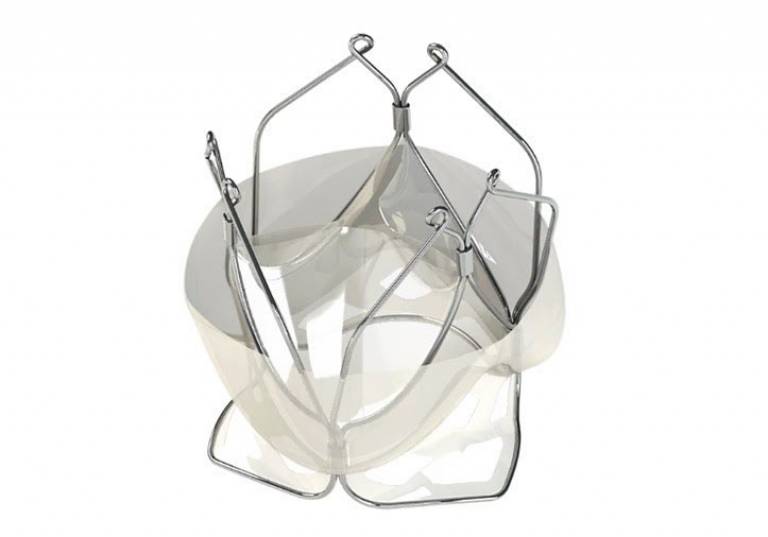A retrievable aortic valve replacement could improve patient safety
UCL researchers have made a new aortic valve replacement for patients who can't undergo open-heart surgery.

31 January 2020
As we grow older, our aortic valve (the valve delivering blood to our main artery) can grow stiffer. An ageing population means more people requiring cardiovascular intervention, however many patients are too unwell to withstand the stress of invasive surgery.
Transcatheter aortic valve replacements (TAVR) is a minimally-invasive procedure to replace an aortic valve that has become too narrow to function properly. It involves a clinician inserting a catheter through the leg or chest and guiding it the heart. This avoids a lot of the risks of open-heart surgery but the current methods still require safety improvements.
Researchers in the UCL Cardiovascular Engineering Group designed and manufactured a new transcatheter aortic valve implant that is even safer and more effective for patients – the device is called TRISKELE.
Lab director Prof Gaetano Burriesci worked with colleagues from UCLH to develop this new technology. The valve substitute is fully retrievable and able to be repositioned in the patient if required. The valve substitute’s leaflets (flaps that let blood in and out) are made of a new polymer, also developed at UCL.
Tests in the laboratory have shown that TRISKELE functions better than similar devices currently in the market, with better valve performance and improved durability. The technology is currently going through preclinical investigation.
Related links:
 Close
Close

